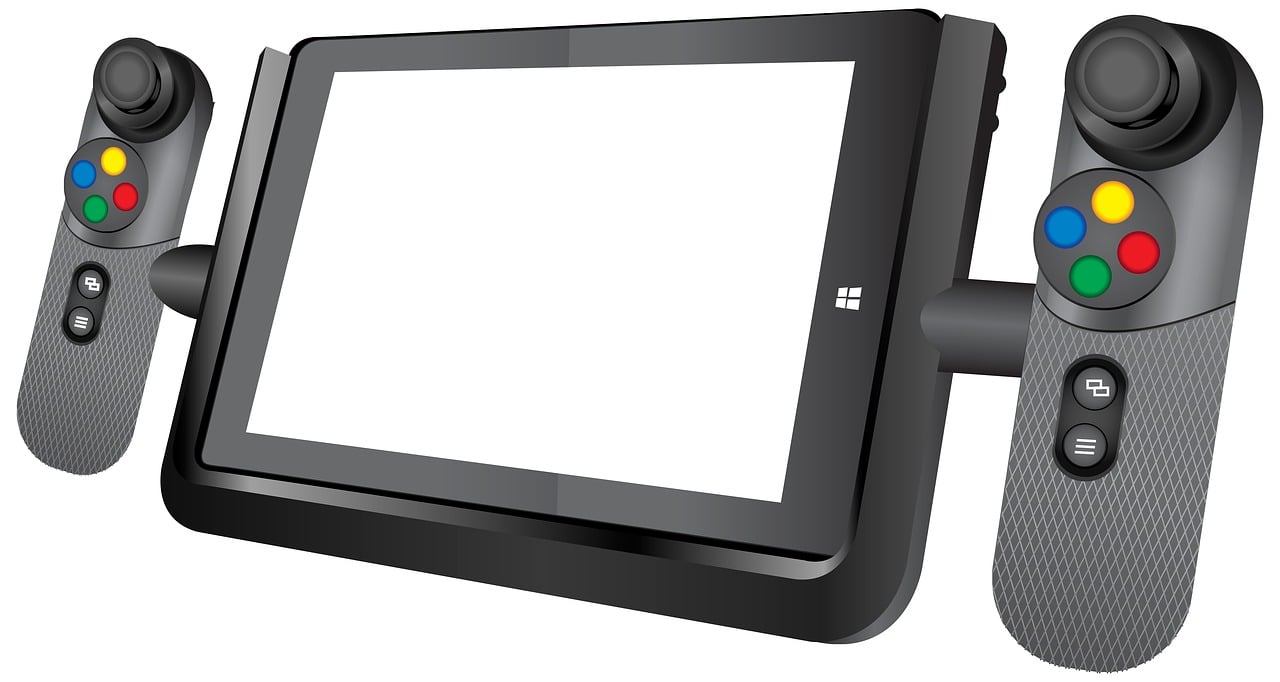Table of Contents
The world of travel has undergone a remarkable transformation with the advent of tablets and mobile computing technology. These sleek and portable devices have become essential companions for travelers, offering a myriad of features that enhance every aspect of the journey. From planning and navigation to entertainment and communication, tablets have revolutionized the way we explore the world. In this article, we will explore how tablets have become indispensable travel companions and the ways in which they enrich the travel experience.
The integration of tablets into the realm of travel has truly revolutionized the way we embark on adventures and explore the world. Let’s delve deeper into how tablets have become indispensable travel companions and how they elevate the entire travel experience:
Travel Planning and Research: Tablets are powerful tools for travel planning and research. Travelers can access a wealth of information, from destination guides and accommodation reviews to flight bookings and travel itineraries. Interactive maps and travel apps provide insights into attractions, local cuisine and cultural experiences, helping travelers make informed decisions.
Navigation and GPS: Tablets serve as navigation aids, offering real-time GPS tracking and mapping services. Travelers can effortlessly find their way in unfamiliar cities, locate points of interest and plan efficient routes for sightseeing. Offline map downloads ensure that navigation remains reliable even without an internet connection.
Multilingual Assistance: Language translation apps and dictionaries on tablets bridge language barriers, enabling travelers to communicate effectively with locals. These apps can assist in ordering meals, asking for directions and engaging in meaningful conversations, fostering cultural exchange.
Entertainment on the Go: Tablets provide an array of entertainment options for long flights, train journeys or downtime during travel. Travelers can watch movies, read e-books, listen to music or play games, making transit time more enjoyable and passing the hours effortlessly.
Capture Memories: Tablets equipped with high-quality cameras are excellent for capturing travel memories. Travelers can snap photos and record videos of scenic landscapes, landmarks and memorable moments. Tablets also serve as a convenient platform for editing and sharing travel photos with family and friends.
Document Storage: Tablets are ideal for storing essential travel documents securely. Travelers can keep digital copies of passports, visas, travel insurance and itineraries, ensuring that important information is readily accessible in case of emergencies.
Real-Time Updates: Tablets keep travelers informed with real-time updates on flight status, weather conditions and local news. Staying informed allows travelers to adapt their plans and make necessary adjustments in response to changing circumstances.
Communication: Tablets enable travelers to stay connected with loved ones back home through email, social media and messaging apps. Video calls provide a personal touch, allowing travelers to share their experiences and connect with family and friends in real time.
Travelogues and Blogging: Travelers can document their journeys and share their experiences with the world through travel blogs or video logs (vlogs). Tablets provide a convenient platform for writing travelogues, editing videos and uploading content to social media platforms.
Currency Conversion and Financial Management: Travel apps offer currency conversion tools, helping travelers manage their expenses and make informed financial decisions while abroad. Banking apps also allow for secure access to accounts and transactions.
Emergency Assistance: Tablets provide access to emergency services and resources. Travelers can use tablets to contact local authorities, access medical information or seek assistance in case of emergencies.
Local Recommendations: Travelers can tap into local insights and recommendations through travel apps and forums. Locals and fellow travelers often share tips on hidden gems, local eateries and off-the-beaten-path experiences.
In conclusion, tablets have seamlessly integrated into the world of travel, becoming indispensable companions for modern adventurers. They offer a multitude of functionalities that enhance travel planning, navigation, entertainment and communication. With their versatility and portability, tablets have transformed the travel experience, empowering travelers to explore the world with confidence and convenience.
Additionally, you can find further information on this topic by visiting this page: How Information Technology Has Affected the Tourism and …
Trip Planning and Research
Tablets have revolutionized the way travelers plan their trips. With access to the internet and a plethora of travel apps, users can research destinations, compare flight and accommodation options, read reviews and create detailed itineraries—all from the palm of their hand. Tablets offer a seamless and efficient way to gather information, ensuring that travelers are well-prepared for their adventures.
The impact of tablets on travel planning cannot be overstated, as they have ushered in a new era of convenience and efficiency for globetrotters. Here’s an in-depth exploration of how tablets have revolutionized the way travelers prepare for their journeys:
1. Instant Access to Information: Tablets provide travelers with immediate access to a vast repository of travel-related information on the internet. Whether you’re in the comfort of your home or exploring a new destination, you can swiftly look up details about attractions, restaurants, hotels and local activities. This real-time access ensures that you can make informed decisions on the go.
2. Comprehensive Travel Apps: Travel apps have become indispensable tools for travelers and tablets are the ideal platform for these applications. From flight booking apps and accommodation reservation platforms to navigation and translation tools, tablets can host a wide range of travel apps that simplify every aspect of your journey.
3. Visual Inspiration: Tablets with high-resolution displays provide stunning visuals, making them perfect for browsing travel photos, videos and destination guides. Travelers can immerse themselves in the beauty and culture of their chosen destinations, gaining inspiration and insights that help shape their itineraries.
4. Itinerary Planning: Tablets offer the convenience of itinerary planning on a digital platform. Travelers can create, edit and organize their trip schedules effortlessly. With notes, maps and multimedia attachments, these digital itineraries provide a comprehensive overview of the journey, including reservations, contact information and sightseeing details.
5. Booking Flexibility: Tablets enable travelers to compare flight and accommodation options, read reviews and make bookings directly from the device. This flexibility allows you to secure the best deals and make last-minute adjustments to your travel plans if necessary.
6. Language and Communication: Language translation apps on tablets facilitate communication with locals in foreign destinations. These apps can help you navigate language barriers, ask for directions and engage in meaningful conversations, enhancing the overall travel experience.
7. Offline Access: While internet connectivity is essential, tablets also support the download and offline access of maps, guidebooks and other travel resources. This feature is invaluable when traveling to areas with limited or expensive internet access, ensuring that you always have essential information at your fingertips.
8. Enhanced Organization: Tablets offer powerful organizational tools that help travelers stay on top of their plans. Calendar apps, note-taking apps and to-do lists can be used to manage travel documents, keep track of reservations and set reminders for important dates and activities.
9. Travel Safety: Tablets can store important travel documents, including digital copies of passports, visas and insurance policies. This digital backup ensures that travelers have access to crucial information in case of loss or theft.
10. Digital Entertainment: Tablets are versatile entertainment hubs during long journeys. They can store e-books, movies, music and games, providing entertainment options for flights, train rides or downtime at the destination.
In conclusion, tablets have become indispensable travel companions that empower travelers to plan, explore and navigate the world with unparalleled convenience and efficiency. Their ability to provide instant access to information, host a wide array of travel apps and support comprehensive itinerary planning has transformed the way individuals prepare for their adventures. Whether you’re embarking on a spontaneous getaway or a meticulously planned vacation, tablets ensure that you are well-prepared and equipped to make the most of your travel experiences.
Explore this link for a more extensive examination of the topic: Telemedicine for healthcare: Capabilities, features, barriers, and …

Navigation and Maps
Getting lost in an unfamiliar place is a thing of the past, thanks to tablets. Integrated GPS and navigation apps like Google Maps and Apple Maps provide real-time directions, helping travelers navigate cities, find landmarks and discover hidden gems. Offline map functionality is especially useful when exploring areas with limited connectivity.
Tablets have revolutionized the way we navigate and explore unfamiliar places, making the fear of getting lost a thing of the past. With their integrated GPS capabilities and user-friendly navigation apps like Google Maps and Apple Maps, these devices have become indispensable travel companions, offering a host of features that enhance the travel experience.
The real-time GPS and navigation apps on tablets have transformed the way we navigate cities and regions. Travelers can effortlessly input their destination and the app provides turn-by-turn directions, offering the most efficient routes based on current traffic conditions. This not only saves time but also helps travelers avoid traffic congestion and reach their destinations with ease.
One of the standout features of tablet-based navigation is the ability to discover local landmarks and hidden gems. These apps provide information about nearby points of interest, restaurants, attractions and historical sites. Travelers can explore new destinations confidently, knowing that they can easily locate must-visit places and gain insights into the local culture and history.
Offline map functionality is a game-changer, especially when exploring areas with limited connectivity. Tablets allow users to download maps for specific regions in advance, ensuring that navigation remains available even in remote or off-the-grid locations. This offline feature is particularly valuable for hikers, campers and adventurers who venture into areas with unreliable internet access.
Additionally, tablets provide a larger and more immersive screen for navigation compared to smartphones. This larger display makes it easier to read maps, follow directions and view points of interest, contributing to a smoother and more enjoyable travel experience.
Moreover, tablets can serve as versatile travel guides beyond navigation. Many travel apps and e-books offer comprehensive information about destinations, including travel tips, local customs and suggested itineraries. Travelers can access this wealth of knowledge right on their tablets, allowing them to plan their trips effectively and make the most of their adventures.
Tablets also support travel journaling and photography. Travelers can document their experiences, write notes and capture memories with the device’s built-in camera. This multimedia aspect adds a personal touch to the travel experience, enabling travelers to create lasting memories and share their adventures with friends and family.
In conclusion, tablets have transformed travel by providing seamless navigation, real-time directions and valuable insights into destinations. The integration of GPS and navigation apps, along with offline map functionality, ensures that travelers can confidently explore unfamiliar places and make the most of their journeys. Tablets have become essential tools for modern adventurers, enhancing the way we navigate, discover and document our travel experiences.
Explore this link for a more extensive examination of the topic: Stories From Experts About the Impact of Digital Life | Pew Research …

Language Translation
Language barriers no longer pose insurmountable challenges for travelers. Tablets offer translation apps and tools that can instantly translate text and speech from one language to another. This feature enables travelers to communicate with locals, read menus and navigate foreign languages with ease.
Tablets have revolutionized the way travelers navigate language barriers, making international journeys more accessible, enjoyable and culturally enriching. Here’s a closer look at how tablets and their translation tools have transformed the travel experience:
Instant Communication: Tablets equipped with translation apps enable travelers to communicate effectively in foreign countries. These apps can instantly translate spoken words or text, bridging language gaps and facilitating conversations with locals. This not only enhances the travel experience but also fosters meaningful connections with people from diverse backgrounds.
Ease of Navigation: Tablets with GPS capabilities, combined with translation apps, offer a comprehensive solution for navigating foreign destinations. Travelers can input their destination in their native language and receive step-by-step directions in the local language. This simplifies the process of exploring new places and ensures travelers don’t get lost.
Cultural Immersion: Tablets allow travelers to engage more deeply with local cultures. Language translation apps facilitate interactions with locals, making it easier to ask questions, learn about customs and participate in cultural activities. This immersion enriches the travel experience and promotes cross-cultural understanding.
Diverse Dining Experiences: Tablets with translation tools are a game-changer for dining in foreign countries. Travelers can use their devices to translate menus, making it easier to select dishes that align with their preferences or dietary restrictions. This encourages culinary exploration and the enjoyment of local cuisines.
Emergency Assistance: In case of emergencies or unexpected situations, tablets can be invaluable. Travelers can use translation apps to communicate with emergency services, medical professionals or authorities, ensuring they receive the necessary help and support.
Learning Opportunities: Travelers can use tablets as learning tools while abroad. Language learning apps and resources allow them to pick up basic phrases and vocabulary, enhancing their ability to communicate with locals and immerse themselves in the local language.
Efficient Planning: Tablets are versatile planning tools for travelers. They can use them to research accommodations, transportation options and tourist attractions in their preferred language. This pre-travel planning minimizes stress and ensures a smoother travel experience.
Multilingual Travel Guides: Tablets can store multilingual travel guides and e-books, providing travelers with valuable information about their destination. These guides cover everything from historical sites to local customs, enhancing travelers’ understanding and appreciation of the places they visit.
Real-Time Translations: Some tablets offer real-time translation features, allowing travelers to point the device’s camera at foreign text, such as street signs or restaurant menus and receive instant translations. This on-the-fly translation is particularly useful for navigating unfamiliar environments.
Enhanced Safety: Tablets can help ensure the safety of travelers in foreign countries. They can use translation apps to ask for directions, inquire about local safety tips or seek assistance in case of an emergency, promoting a sense of security and well-being.
In summary, tablets equipped with translation apps and tools have removed language barriers that once posed challenges for travelers. They facilitate effective communication, cultural immersion and navigation in foreign countries, making travel more accessible and enjoyable. Travelers can now explore the world with confidence, knowing that their tablets are powerful language companions that enable them to connect with locals, savor local cuisine and embrace the richness of global cultures.
Looking for more insights? You’ll find them right here in our extended coverage: Telemedicine for healthcare: Capabilities, features, barriers, and …

Travel Entertainment
Long journeys, whether by plane, train or bus, can be tedious. Tablets serve as entertainment hubs, allowing travelers to watch movies, TV shows, read e-books, play games and listen to music during transit. Downloaded content ensures that entertainment is readily available, even without an internet connection.
In an age of constant connectivity, long journeys can be both physically and mentally taxing. However, tablets have emerged as the ultimate companions for travelers, transforming these journeys into opportunities for entertainment, productivity and relaxation. Here’s an extended look at how tablets redefine the travel experience:
Entertainment Variety: Tablets offer a diverse array of entertainment options that cater to a wide range of tastes and preferences. Whether you’re a movie buff, an avid reader, a gaming enthusiast or a music lover, tablets provide an extensive library of content that can keep you engaged throughout your journey.
Streaming and Downloaded Content: While streaming services provide access to an extensive library of content, tablets allow travelers to download their favorite movies, TV shows, books, games and music in advance. This is particularly beneficial for those traveling through areas with poor or no internet connectivity, ensuring uninterrupted entertainment.
Productivity on the Go: Tablets aren’t just for leisure; they also enable travelers to stay productive during transit. Whether you need to catch up on work emails, draft documents or make travel plans, tablets are versatile tools that facilitate on-the-go productivity.
Interactive Learning: For educational or self-improvement purposes, tablets can serve as portable classrooms. Travelers can access online courses, language-learning apps or educational content to make the most of their journey by acquiring new skills or knowledge.
Offline Maps and Navigation: Tablets can function as reliable navigation tools. With offline maps and GPS capabilities, you can explore unfamiliar destinations with confidence, even when there’s no internet connection available.
Comfort and Portability: Tablets are designed for convenience and portability, making them ideal travel companions. They’re lightweight and compact, fitting easily into carry-on bags or backpacks and their long battery life ensures they last throughout the journey.
Multitasking: Tablets often support multitasking, allowing travelers to switch between apps and tasks seamlessly. This means you can watch a movie while checking your travel itinerary or play a game during layovers without missing important updates.
E-Books and Audiobooks: Tablets have revolutionized reading habits with e-books and audiobooks. You can carry an entire library with you and features like adjustable text size and built-in dictionaries enhance the reading experience.
Local Insights and Recommendations: Travel apps and websites provide valuable local insights, recommendations and reviews. With your tablet, you can discover hidden gems, authentic dining experiences and must-visit attractions at your destination.
Social Connection: Tablets keep you connected with friends and family back home through messaging and social media apps. Sharing your travel experiences in real-time becomes effortless, fostering a sense of connection even when you’re far from home.
Mindful Relaxation: Travel can be stressful, but tablets can help you unwind and relax. Meditation and relaxation apps offer guided sessions to help reduce stress and anxiety during your journey.
In essence, tablets have evolved into versatile, all-in-one travel companions that enhance the travel experience on various levels. Whether you’re seeking entertainment, productivity, exploration or relaxation, tablets have the power to make your journey more enjoyable and efficient. So, as you embark on your next adventure, consider your tablet as an essential tool for making the most of your travel experience.
For additional details, consider exploring the related content available here Understanding Customer Experience Throughout the Customer …

Digital Travel Documents
Tablets have replaced traditional paper documents with digital counterparts. Travelers can store boarding passes, hotel reservations, travel insurance and identification documents securely on their tablets. This not only reduces paper waste but also streamlines the check-in and boarding processes.
The shift from traditional paper documents to digital counterparts on tablets has brought about numerous advantages, particularly for travelers seeking convenience, sustainability and efficiency. Let’s delve further into how this transformation has revolutionized travel and its broader implications:
Eco-Friendly Travel: Embracing digital documents on tablets aligns with the global push for sustainability. By reducing the need for printed materials such as paper boarding passes and travel itineraries, travelers can significantly reduce their environmental footprint. This eco-conscious choice contributes to conservation efforts and helps mitigate the impact of travel-related waste.
Paperless Convenience: The concept of a “paperless journey” has become increasingly popular among travelers. Tablets serve as all-in-one hubs for storing essential travel documents, eliminating the hassle of managing and organizing physical papers. Travelers can access everything they need in one place, from e-tickets and reservations to travel guides and maps.
Security and Data Protection: Digital documents on tablets offer a secure and organized means of safeguarding sensitive travel information. Passcode or biometric authentication adds an extra layer of protection, ensuring that personal data and travel documents remain confidential and accessible only to the owner.
Streamlined Check-In: The use of digital boarding passes and identification documents streamlines the check-in and security screening processes at airports and hotels. Travelers can simply present their tablets or smartphones for scanning, reducing the need to search for and handle physical documents. This efficiency contributes to shorter lines and faster processing times.
Real-Time Updates: Travel information on tablets can be updated in real-time, ensuring that travelers receive the latest details about flights, gate changes, delays and other critical updates. This flexibility allows travelers to adapt to changing circumstances more effectively and stay informed throughout their journey.
Traveler Engagement: Tablets offer opportunities for enhanced traveler engagement and personalization. Travel apps can provide tailored recommendations, local insights and interactive guides, enriching the overall travel experience.
Multilingual Support: Tablets can assist travelers in overcoming language barriers. Translation apps and language-learning tools enable travelers to communicate effectively and engage with locals, fostering cultural exchange and understanding.
Digital Archive: Beyond the trip itself, tablets serve as digital archives of travel memories. Travelers can document their journeys through photos, videos and journal entries, creating a lasting record of their experiences. This digital archive is easily accessible for reminiscing or sharing with friends and family.
Accessibility for All: Tablets enhance accessibility for travelers with disabilities. Screen readers, voice commands and assistive technology apps empower individuals with visual or auditory impairments to navigate and enjoy their travel experiences independently.
Cost Savings: Travelers can save money by avoiding fees associated with printing or reissuing paper documents. Some airlines and travel providers may even offer discounts or incentives for travelers who opt for digital tickets and reservations.
In conclusion, tablets have ushered in a new era of eco-friendly, efficient and convenient travel. By replacing paper documents with digital counterparts, travelers can reduce waste, enhance security and streamline their journeys. The shift to paperless travel not only benefits individuals but also contributes to a more sustainable and responsible approach to exploring the world. As technology continues to evolve, the travel experience is likely to become even more seamless and personalized, thanks to the versatility of tablets.
To expand your knowledge on this subject, make sure to read on at this location: My Trip – My Viking Journey | Viking® Ocean Cruises

Travel Blogging and Journaling
Tablets have empowered travelers to document their journeys in real-time. Travel bloggers and enthusiasts can write journals, capture photos and videos and share their experiences with a global audience via social media and blogging apps. Tablets enable travelers to become storytellers, sharing their adventures with others.
The advent of tablets has indeed transformed the way travelers document and share their journeys. In today’s digital age, these versatile devices have empowered globetrotters to seamlessly capture and broadcast their adventures, fostering a sense of connectivity and inspiration among audiences worldwide. Let’s explore how tablets have revolutionized travel storytelling:
Real-Time Multimedia Content Creation: Tablets offer a convenient platform for travelers to create a wide array of multimedia content on the go. With built-in cameras and video recording capabilities, travelers can capture high-quality photos and videos of scenic landscapes, local cuisines, cultural events and personal experiences.
Travel Blogging and Journaling: Tablets have become indispensable tools for travel bloggers and enthusiasts who wish to maintain online journals or blogs during their journeys. Tablet apps provide an intuitive and user-friendly interface for composing and formatting text, adding images and embedding videos, making it easy to document their experiences in detail.
Instant Social Media Sharing: Tablets enable travelers to share their adventures instantly with a global audience through social media platforms. Whether it’s a picturesque sunset, a memorable encounter or a culinary discovery, travelers can upload photos and stories in real-time, creating a sense of immediacy and connection with followers.
Video Blogging (Vlogging): For those who prefer video storytelling, tablets equipped with high-definition cameras are ideal for vlogging. Travel vloggers can record and edit their video content directly on the tablet, adding narration, music and visual effects to create engaging travel videos.
Access to Travel Apps: Tablets offer access to a plethora of travel-related apps, from navigation and translation tools to weather forecasts and travel guides. These apps enhance the travel experience by providing essential information and helping travelers make informed decisions on the road.
Multilingual Communication: Tablets equipped with translation apps and language-learning tools enable travelers to communicate more effectively with locals. This fosters cultural exchange and deepens the connection with the destinations visited.
Remote Work and Travel: Tablets have facilitated the rise of “digital nomads” who combine work and travel. With the right apps and accessories, travelers can work remotely from virtually anywhere in the world, maintaining their professional commitments while exploring new places.
Global Connectivity: Tablets with cellular connectivity or access to local SIM cards provide travelers with continuous internet access, allowing them to stay connected with friends and family, access travel resources and share updates even in remote locations.
Collaborative Storytelling: Tablets support collaborative storytelling, enabling travelers to engage with followers through live streams, Q&A sessions and interactive content. This fosters a sense of community and shared exploration.
Inspiration for Others: Travelers who share their journeys through tablets inspire and inform others, encouraging them to embark on their own adventures. This exchange of experiences and recommendations contributes to a richer and more diverse global travel culture.
Archiving Memories: Tablets serve as digital repositories for travelers’ memories. Photos, videos and written accounts are preserved for future reference, allowing travelers to relive their adventures and share them with future generations.
Environmental Consciousness: Tablets can also promote responsible and sustainable travel practices. Travelers can document and promote eco-friendly initiatives, local conservation efforts and culturally sensitive tourism practices, raising awareness and encouraging responsible tourism.
In summary, tablets have truly revolutionized travel storytelling by providing an accessible and versatile platform for capturing, sharing and connecting with a global audience. Travelers, bloggers and enthusiasts alike can now share their unique perspectives and experiences, fostering a sense of global community and inspiring others to explore the beauty and diversity of our world. Tablets have, in many ways, democratized travel storytelling, allowing anyone with a passion for adventure to become a storyteller, sharing their journey with the world.
To expand your knowledge on this subject, make sure to read on at this location: Digital technologies for a new future

Communication and Connection
Staying connected with loved ones while on the road is crucial. Tablets provide a platform for video calls, messaging apps and social media, ensuring that travelers can share their experiences and maintain important connections with friends and family back home.
Staying connected with loved ones while traveling is not just a convenience; it’s a fundamental need in today’s globalized world. Tablets have emerged as essential companions for travelers, offering a versatile platform that goes beyond mere communication and enhances the overall travel experience. Here’s how tablets play a pivotal role in keeping travelers connected with their friends and family, even when they are miles away from home:
1. Video Calls and Face-to-Face Connection:
Tablets enable travelers to bridge the physical gap with their loved ones through video calls. Platforms like Zoom, Skype and FaceTime bring the richness of face-to-face communication, allowing travelers to share their surroundings, experiences and emotions in real-time. Whether it’s sharing a breathtaking sunset from a remote destination or virtually attending a family gathering, tablets make these moments possible.
2. Messaging Apps for Instant Updates:
Messaging apps like WhatsApp, Messenger and Telegram are essential tools for travelers. Tablets provide a larger screen compared to smartphones, making it easier to send and receive messages, photos and videos. These apps enable instant updates, ensuring that travelers can share their adventures, seek advice or simply check in with loved ones with ease.
3. Social Media Sharing:
Tablets are ideal for sharing travel experiences on social media platforms. Travelers can upload high-quality photos and videos, craft engaging posts and interact with their social networks in a more immersive and visually appealing way. This not only keeps friends and family informed but also allows travelers to connect with fellow adventurers and receive recommendations from their online communities.
4. Navigation and Location Sharing:
Tablets are valuable tools for navigation, helping travelers find their way in unfamiliar places. They can share their real-time location with loved ones for added safety and convenience. This feature offers peace of mind to both travelers and those back home, as everyone can track each other’s whereabouts during the journey.
5. Multitasking and Trip Planning:
Tablets support multitasking, enabling travelers to plan their trips efficiently. They can research destinations, book accommodations and make travel arrangements while simultaneously staying connected with loved ones. This multitasking capability ensures that travel planning doesn’t disrupt ongoing communication.
6. Entertainment and Relaxation:
Tablets provide entertainment during transit and downtime, allowing travelers to unwind with e-books, movies and games. Sharing these moments with friends and family can spark conversations and create shared experiences, even when miles apart.
7. Emergency Connectivity:
In the rare event of an emergency or unforeseen circumstance, tablets serve as lifelines to reach out for assistance or communicate critical information to loved ones. Having a reliable communication device at hand can be invaluable in such situations.
In conclusion, tablets have revolutionized the way travelers stay connected with loved ones while on the road. Beyond the convenience of communication, they enhance the travel experience by enabling travelers to share their adventures, seek advice and maintain a sense of connection with their social circles. As tablets continue to evolve, they will undoubtedly play an even more central role in keeping travelers connected, ensuring that distance does not diminish the bonds that tie us to our friends and family, no matter where our journeys take us.
Should you desire more in-depth information, it’s available for your perusal on this page: Telemedicine for healthcare: Capabilities, features, barriers, and …

Local Recommendations and Reviews
Tablets allow travelers to access local recommendations and read reviews of restaurants, attractions and experiences. This user-generated content helps travelers make informed choices and discover hidden gems recommended by fellow explorers.
Tablets have revolutionized the way travelers explore and experience new destinations. In the age of information at our fingertips, they serve as indispensable travel companions, opening up a world of local insights and personalized recommendations. Here’s how tablets, with their access to user-generated content, empower travelers to embark on unforgettable journeys:
Local Expertise at Your Fingertips: Tablets bridge the gap between travelers and local experts. With easy access to platforms like travel blogs, review websites and social media, travelers can tap into the knowledge and experiences of locals and seasoned explorers. This wealth of information provides valuable insights into the best restaurants, off-the-beaten-path attractions and unique experiences that may not be found in guidebooks.
Real-Time Updates: Travel plans can change in an instant and tablets keep travelers informed in real time. From sudden weather changes to unexpected closures or events, tablets equipped with travel apps and up-to-date reviews allow travelers to adapt their itineraries on the fly. This flexibility ensures that every moment of the journey remains dynamic and tailored to personal preferences.
Cuisine Exploration: Food is a central part of any travel experience and tablets enhance culinary exploration. Travelers can browse restaurant reviews, view photos of dishes and even access menus in multiple languages. This aids in making informed dining choices, whether it’s sampling local street food or savoring a fine dining experience.
Hidden Gems Unveiled: Beyond the popular tourist attractions, tablets unveil hidden gems that locals cherish. Through user-generated content, travelers can discover quaint neighborhoods, authentic markets and cultural experiences that may not appear in traditional travel guides. This element of surprise adds depth and authenticity to the travel experience.
Personalized Recommendations: Tablet apps and platforms use algorithms and user preferences to offer personalized recommendations. By analyzing a traveler’s previous choices and interests, these tools suggest activities, attractions and dining options tailored to individual tastes. This personal touch transforms travel into a curated and memorable adventure.
Language and Communication: Tablets are invaluable tools for overcoming language barriers. Translation apps and language learning resources empower travelers to communicate with locals, order food and navigate with ease. This fosters meaningful interactions and cultural exchange, enriching the travel experience.
Social Connection: Tablets also facilitate social interaction among travelers. Social media platforms and travel forums allow individuals to connect, share experiences and offer advice in real time. Travelers can form virtual communities, meet up with fellow explorers and create lasting memories together.
Itinerary Planning: Tablets simplify itinerary planning and organization. With digital travel planners and interactive maps, travelers can efficiently manage their schedules, booking confirmations and tickets. This convenience reduces the stress of logistics, allowing more time to savor the journey itself.
In conclusion, tablets have become indispensable travel companions, enhancing the way we explore the world. Their access to user-generated content empowers travelers with local expertise, personalized recommendations and the flexibility to adapt to changing circumstances. Tablets not only serve as guides but also foster connections, promote cultural understanding and make each travel experience unique and unforgettable. With tablets in hand, travelers embark on journeys of discovery, embracing the unexpected and creating cherished memories along the way.
For a comprehensive look at this subject, we invite you to read more on this dedicated page: Telemedicine for healthcare: Capabilities, features, barriers, and …

Tablets have become indispensable tools for modern travelers, enhancing every aspect of the journey, from planning and navigation to entertainment and communication. Their portability, versatility and connectivity have transformed the way we explore the world, making travel more accessible, enjoyable and enriching. As technology continues to advance, tablets will likely play an even more prominent role in the travel experience, opening up new possibilities for exploration and discovery in our ever-shrinking global village. Whether you’re a seasoned globetrotter or embarking on your first adventure, a tablet is a worthy travel companion that can truly enhance the journey.
If you’d like to dive deeper into this subject, there’s more to discover on this page: Stories From Experts About the Impact of Digital Life | Pew Research …
More links
Explore this link for a more extensive examination of the topic: ConnectedDrive Products and Services | BMW USA
